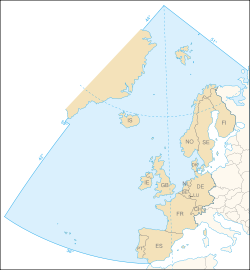
The Basel Convention on the Control of Transboundary Movements of Hazardous Wastes and Their Disposal, usually known as the Basel Convention, is an international treaty that was designed to reduce the movements of hazardous waste between nations, and specifically to prevent transfer of hazardous waste from developed to less developed countries. It does not, however, address the movement of radioactive waste. The convention is also intended to minimize the rate and toxicity of wastes generated, to ensure their environmentally sound management as closely as possible to the source of generation, and to assist developing countries in environmentally sound management of the hazardous and other wastes they generate.

The North Sea lies between Great Britain, Denmark, Norway, Germany, the Netherlands, Belgium and France. An epeiric sea on the European continental shelf, it connects to the Atlantic Ocean through the English Channel in the south and the Norwegian Sea in the north. It is more than 970 kilometres (600 mi) long and 580 kilometres (360 mi) wide, covering 570,000 square kilometres (220,000 sq mi).

The terms international waters or transboundary waters apply where any of the following types of bodies of water transcend international boundaries: oceans, large marine ecosystems, enclosed or semi-enclosed regional seas and estuaries, rivers, lakes, groundwater systems (aquifers), and wetlands.

The Convention on the Prevention of Marine Pollution by Dumping of Wastes and Other Matter 1972, commonly called the "London Convention" or "LC '72" and also abbreviated as Marine Dumping, is an agreement to control pollution of the sea by dumping and to encourage regional agreements supplementary to the convention. It covers the deliberate disposal at sea of wastes or other matter from vessels, aircraft, and platforms. It does not cover discharges from land-based sources such as pipes and outfalls, wastes generated incidental to normal operation of vessels, or placement of materials for purposes other than mere disposal, providing such disposal is not contrary to aims of the convention. It entered into force in 1975. As of September 2016, there were 89 Parties to the convention.
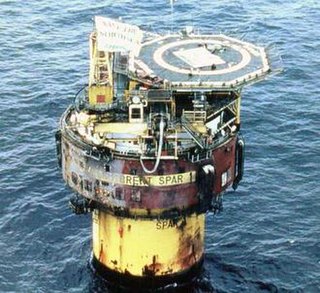
Brent Spar, or Brent E, was a North Sea oil storage and tanker loading buoy in the Brent oilfield, operated by Shell UK. With the completion of a pipeline connection to the oil terminal at Sullom Voe in Shetland, the storage facility had continued in use, but by 1991, was considered to be of no further value. Brent Spar became an issue of public concern in 1995, when the British government announced its support for Shell's application for its disposal in deep Atlantic waters at North Feni Ridge.

Dangerous goods, abbreviated DG, are substances that when transported are a risk to health, safety, property or the environment. Certain dangerous goods that pose risks even when not being transported are known as hazardous materials. An example for dangerous goods is hazardous waste which is waste that has substantial or potential threats to public health or the environment.

Marine conservation, also known as ocean conservation, is the protection and preservation of ecosystems in oceans and seas through planned management in order to prevent the over-exploitation of these marine resources. Marine conservation is informed by the study of marine plants and animal resources and ecosystem functions and is driven by response to the manifested negative effects seen in the environment such as species loss, habitat degradation and changes in ecosystem functions and focuses on limiting human-caused damage to marine ecosystems, restoring damaged marine ecosystems, and preserving vulnerable species and ecosystems of the marine life. Marine conservation is a relatively new discipline which has developed as a response to biological issues such as extinction and marine habitats change.

Environmental harmful product dumping is the practice of transfrontier shipment of waste from one country to another. The goal is to take the waste to a country that has less strict environmental laws, or environmental laws that are not strictly enforced. The economic benefit of this practice is cheap disposal or recycling of waste without the economic regulations of the original country.

Marine Protection, Research and Sanctuaries Act of 1972 (MPRSA) or Ocean Dumping Act is one of several key environmental laws passed by the US Congress in 1972. The Act has two essential aims: to regulate intentional ocean disposal of materials, and to authorize any related research. While the MPRSA regulates the ocean dumping of waste and provides for a research program on ocean dumping, it also provides for the designation and regulation of marine sanctuaries. The act regulates the ocean dumping of all material beyond the territorial limit and prevents or strictly limits dumping material that "would adversely affect human health, welfare, or amenities, or the marine environment, ecological systems, or economic potentialities". The MPRSA authorized the Environmental Protection Agency (EPA) to regulate ocean dumping of materials including, but not limited to, industrial waste, sewage sludge, biological agents, radioactive agents, NBC, garbage, chemicals, and biological and laboratory, as well as other wastes, into the territorial waters of the United States through a permit program. The EPA can issue permits for dumping of materials other than dredge spoils if the agency determines, through a full public notice and process, that the discharge will not unreasonably degrade or endanger human health or welfare or the marine environment. The law also has provisions related to creating marine sanctuaries, conducting ocean disposal research and monitoring coastal water quality.

The Baltic Marine Environment Protection Commission is an intergovernmental organization governing the Convention on the Protection of the Marine Environment of the Baltic Sea Area. A regional sea convention and a platform for environmental policy making at the regional level, HELCOM works for the protection of the marine environment of the Baltic Sea. HELCOM consists of ten members – the nine Baltic Sea countries Denmark, Estonia, Finland, Germany, Latvia, Lithuania, Poland, Russia and Sweden, plus the European Union.

The Convention for the Protection of the Marine Environment and the Coastal Region of the Mediterranean, originally the Convention for Protection of the Mediterranean Sea against Pollution, and often simply referred to as the Barcelona Convention, is a regional convention adopted in 1976 to prevent and abate pollution from ships, aircraft and land based sources in the Mediterranean Sea. This includes but is not limited to dumping, run-off and discharges. Signers agreed to cooperate and assist in dealing with pollution emergencies, monitoring and scientific research. The convention was adopted on 16 February 1976 and amended on 10 June 1995.
The South East Atlantic Fisheries Organisation (SEAFO) is an organization that maintains controls over fishing and fishing related acts in the Southeastern Atlantic Ocean.
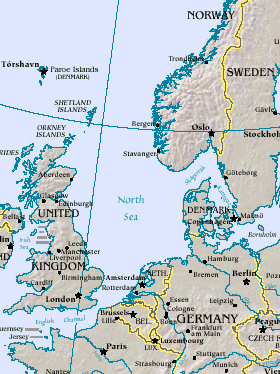
Fishing in the North Sea is concentrated in the southern part of the coastal waters. The main method of fishing is trawling.
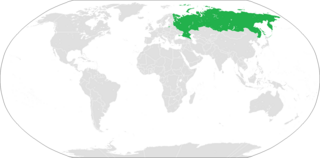
The environment of Russia
The Convention for the Prevention of Marine Pollution by Dumping from Ships and Aircraft also called the Oslo Convention was an international agreement designed to control the dumping of harmful substances from ships and aircraft into the sea. It was adopted on 15 February 1972 in Oslo, Norway and came into force on 7 April 1974. Original signatories were Denmark, France, Iceland, Norway, Portugal, Spain, and Sweden. Later members included the United Kingdom (1975), the Netherlands (1975), Germany (1977), Finland (1979), Ireland (1982), and Belgium (1985).

Waste management laws govern the transport, treatment, storage, and disposal of all manner of waste, including municipal solid waste, hazardous waste, and nuclear waste, among many other types. Waste laws are generally designed to minimize or eliminate the uncontrolled dispersal of waste materials into the environment in a manner that may cause ecological or biological harm, and include laws designed to reduce the generation of waste and promote or mandate waste recycling. Regulatory efforts include identifying and categorizing waste types and mandating transport, treatment, storage, and disposal practices.
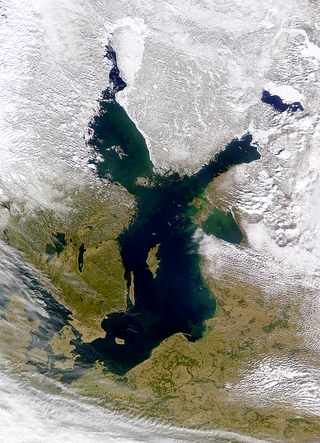
Convention on the Protection of the Marine Environment of the Baltic Sea Area, 1992 is an international convention encompassing various measures for the prevention and elimination of pollution of the Baltic Sea. The convention is implemented by the Helsinki Commission (HELCOM).
This is a list of notable events relating to the environment in 1992. They relate to environmental law, conservation, environmentalism and environmental issues.
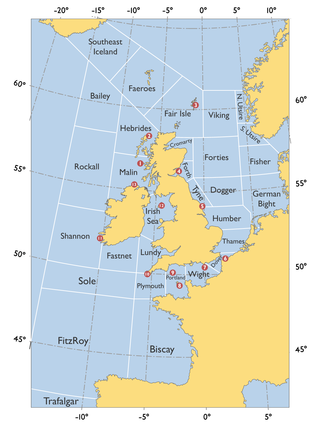
The Malin Sea is a marginal sea of the North-East Atlantic over the Malin Shelf, the continental shelf north of Ireland and southwest of Scotland. It is connected to the Irish Sea by the North Channel, and overlaps the Inner Seas off the West Coast of Scotland. Of the UK Shipping Forecast areas, the Malin Sea covers most of Malin, and by some definitions extends into Rockall. The area is within the exclusive economic zones of Ireland and the United Kingdom.



